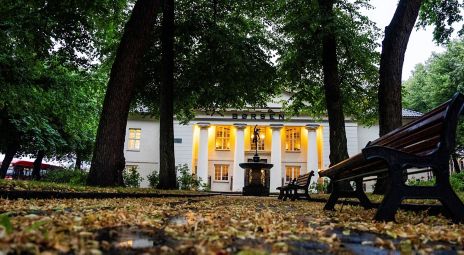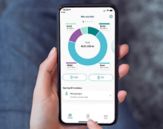DNB Spare-fond (Savings funds)
The DNB Spare mutual funds are a range of mutual fund packs for people who want an easy way to save over the long term but don’t want too many options.

Passively managed proportion of equities*
Invests in international and Norwegian shares
Lower price
* The fund’s equity investments are made in index funds. Index funds do not have managers who try to create better returns than the index.
The DNB Spare fund packages are different packages with mutual funds whose risk is kept stable over time. The proportion of equities of the fund package is automatically held at the level you choose, without you having to do anything.
The number in the name indicates the proportion of equities in the fund package. The higher the proportion of equities, the higher the risk but thereby also the better the chances of achieving higher expected returns over time.
The mutual funds invest in up to six sub-funds and have broad exposure to the global and Norwegian equity and fixed income markets.
The funds DNB Spare invests in:
Passive management (index-based management) means that the fund’s investments follow a specific benchmark index. Since the index fund, among other things, does not have managers trying to generate better returns than the index, the costs are lower than for actively managed funds.
DNB Spare 100

When you want a high return and are comfortable with major fluctuations in value during the savings period.
The time horizon for savings should be six years or more due to the high proportion of equities.
DNB Spare 80

When you want a better return than from a bank account and are comfortable with moderate to high fluctuations during the savings period.
The time horizon for savings should be six years or more due to the high proportion of equities.
DNB Spare 50

When you want a better return than from a bank account and are comfortable with moderate fluctuations during the savings period.
Your time horizon for savings should be three years or more.
DNB Spare 30

When you want a slightly better return than from a bank account but want minimal fluctuations during the savings period.
Your time horizon for savings should be three years or more.

Find your savings fund with digital fund adviser
How much do you want to save? And how much risk can you and your finances tolerate? Check the digital fund adviser in the Spare app to find the Spare fund that’s best suited to you!

Simple and flexible pension savings with DNB Lev Mer
With DNB Lev Mer you get a good composition of shares and fixed-income securities, adapted to your age.
Historical returns are no guarantee of future returns. Future returns will depend, among other things, on market developments, the skill of the Portfolio Manager, the mutual fund’s risk, and the management costs. Returns may be negative as a result of mark-to-market losses.
Sustainability in mutual funds and in our advice

SFDR is the regulation in the EU action plan for sustainable finance. SFDR ensures that financial institutions publish their financial products’ investment strategy, investment objectives and actual investments.
See more mutual funds here
Fund with sustainability profile
Selected mutual funds with a focus on climate, environment and the oceans.
DNB Fund Disruptive Opportunities
Invests in companies that operate in pioneering technologies
DNB Fund Nordic Small Cap
Invests in smaller, publicly-listed Nordic companies
DNB Norge
Invests mainly in Nordic securities on the Oslo Stock Exchange
DNB SMB
Invests in small and medium-sized businesses, mainly in Norway
DNB Bioteknologi (DNB Biotechnology)
Invests in vaccines, medicines and diagnostics
DNB Health Care
Equity fund that invests in healthcare companies globally
DNB Finans (DNB Finance)
Invests in the financial sector and other related businesses
DNB Global Emerging Markets
Invests in developing markets across the world
DNB Global
Normal breadth of exposure across regions and sectors
DNB Teknologi (Technology)
Broad exposure to the digital companies in the world
DNB Global Indeks (Global Index)
Invests in companies listed on stock exchanges in developing economies